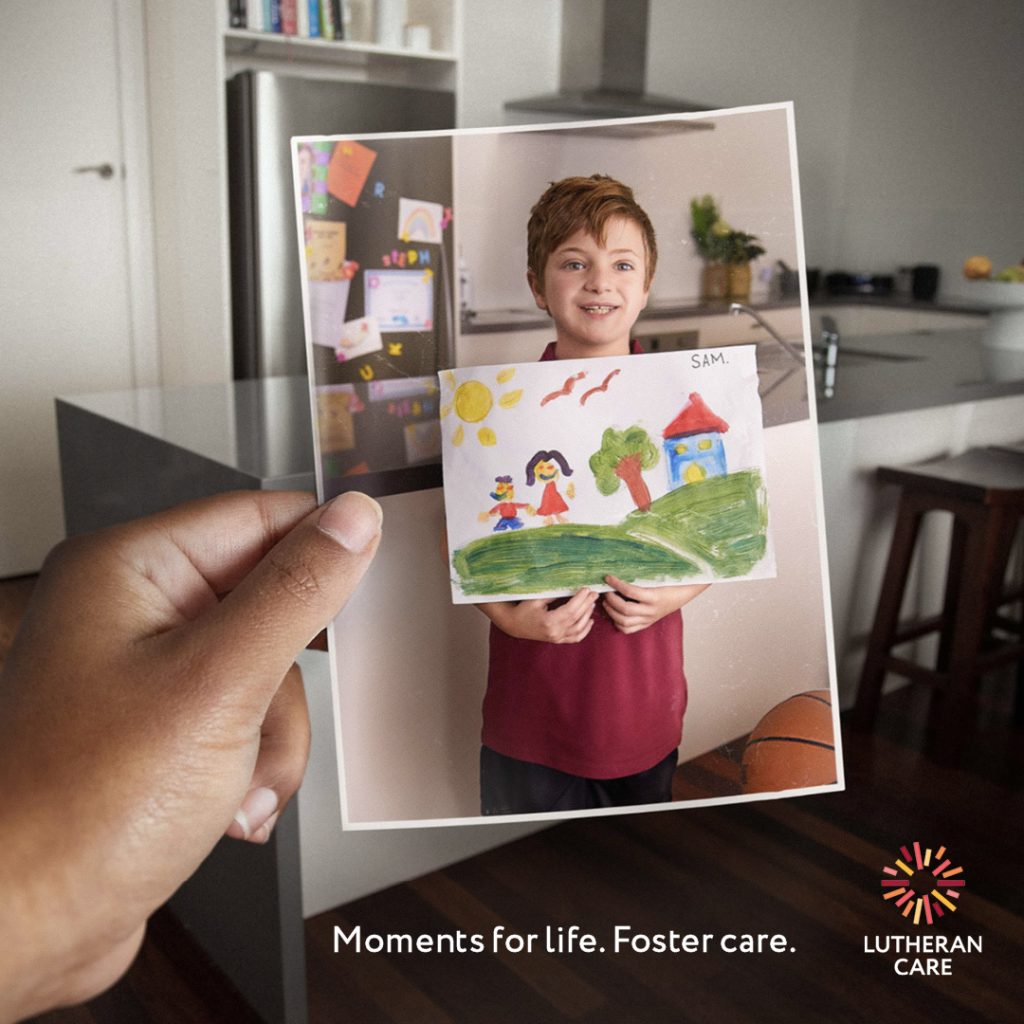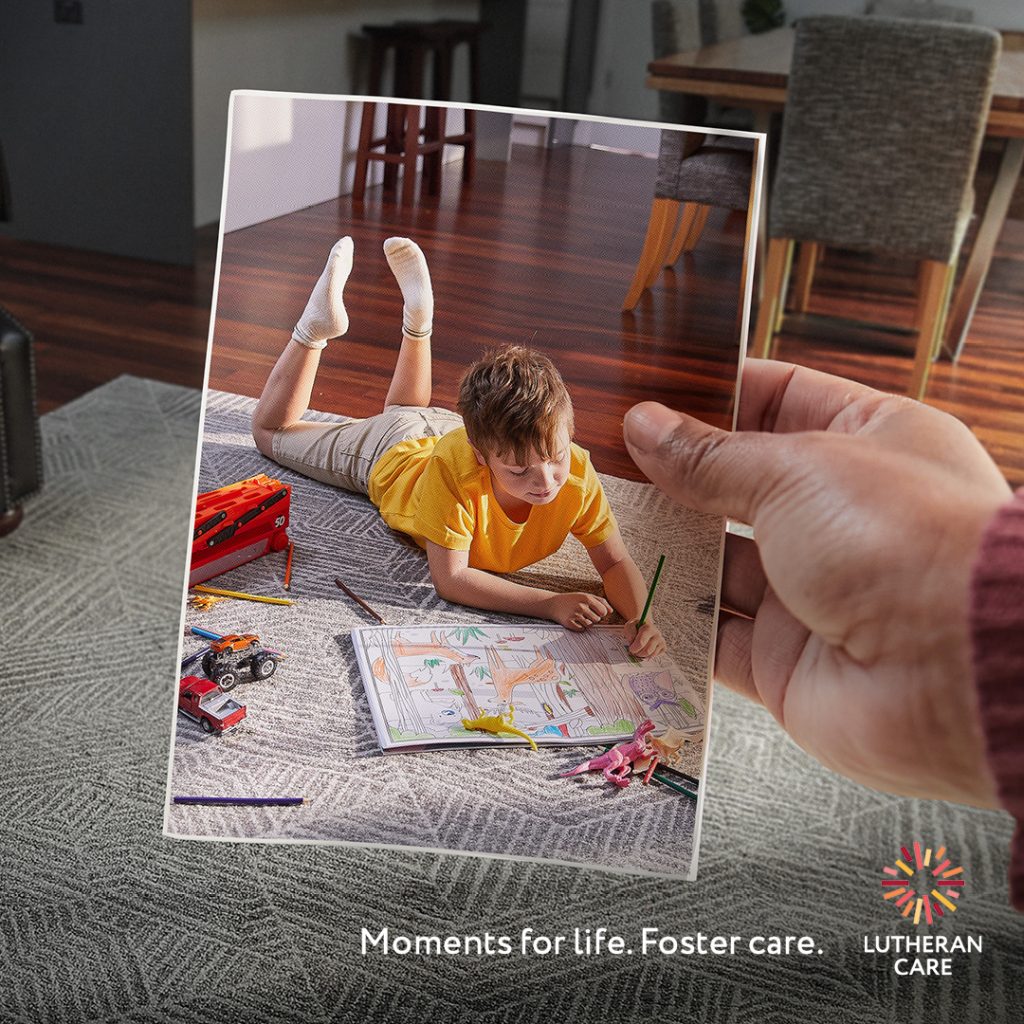Who can foster?
Foster Care plays a vital role in the lives of children and young people in care.

Foster carers offer children and young people physical and emotional safety, positive attachments, opportunities for healing and ultimately, the right to grow up with a strong sense of pride, identity and belonging; to realize the right to thrive.
We welcome enquiries from everyday members of the community who can provide a safe and caring home for children and young people when their parent/s or relatives are unable to care for them or when children are at risk of harm.
Fostering is a very rewarding experience for foster carers and families, but not without it’s challenges.
Foster carers are not expected to be perfect, but they do need to provide a therapeutic (safe) home environment, hold a certain skillset to parent from a trauma and attachment informed approach (we cover this in applicant training!) and relate well to children, committed to meeting their needs.
We welcome foster carers from all walks of life.
Foster carers can be:
- Male or female
- Single or a couple (including de facto and same-sex couples)
- Biological parents or adults without children
- Pet owners
- Renting or own their home
- Employed full-time, part-time or retired
- From all occupations


Is fostering right for you and your family?
To become a foster carer, you will undergo an assessment process where your maturity, skillset, health and lifestyle is considered within the context of the type of care you would like to provide.
The process to becoming a foster carer is not based on your income or assets, but prospective foster carers do need to demonstrate their financially stability and capability of supporting a child. There is a tax-free fortnightly allowance paid to foster carers to help cover the costs of caring for children and young people. The tax-free fortnightly allowance is significantly higher in Specialist Care than Generalist Care – but neither is comparable to or considered an income.
Furthermore, prospective foster carers are asked to demonstrate their physical and emotional availability to care for children and young people in care. Beginning the journey to foster is a significant life decision and will impact everyone in the home. Children and young people in care have often come from chaotic or unpredictable home environments. To help children and young people settle in to a new environment and establish strong attachments to new caregivers, foster carers provide stability and predictability which helps children and young people feel safe. Big life events such as moving house, renovating, starting a new job, supporting biological children in year 12 or undergoing IVF treatments are both physically and emotional stressful. Therefore, we encourage all families considering fostering to reflect on the timing of their application and to consider submitting an application to foster when you are in a stable season of life with the capacity to offer patience and child-focused nurture to the children and young people placed in your care.
Additionally, South Australian foster carers must be Australian Citizens or Permanent Residents and are generally over 25 years of age.
For more detailed information about the assessment process, visit the Assessment & Training section on Become a Foster Carer.
For more information about what makes a successful foster carer, we’ve outlined some of the characteristics and personal qualities below.
Who Can Foster?
What makes a successful foster carer?
The assessment and training process to becoming a foster carer is designed to help inform and confirm whether foster caring is right for you and your family. The process looks at both your practical capacity to meet children’s needs and your personal strengths and qualities to determine how you will relate to children and young people, specifically children and young people from a trauma background.
Some of the key characteristics and qualities held by successful foster carers are outlined below.
Flexibility
Successful foster carers have time availability to offer children and young people, and flexible expectations of themselves, children and young people, and the future. There are often unknown variables throughout the caring journey and carers may need to adapt their homes and lives to meet the child's growing and changing needs. Successful foster carers are flexible enough to simultaneously be okay with what's unknown and strive for success in helping children and young people take small steps toward meeting goals in all their life domains.
Teamwork
Foster carers are never alone in their caring role for children and young people. As a foster carer, you are a key member of the 'Care Team' that is working together to meet the best interests of the child. The Care Team includes foster carers, your LCC support worker, the child's DCP social worker and other professionals in the child's life e.g school teachers, physiologists, medical professionals, therapists or counsellors. Every LCC foster family is allocated an LCC support worker who journeys alongside you to support your family, help you navigate the child protection system and where required, advocate for you and the children and young people in your care. All members of the Care Team have an essential role to play and the voice of foster carers at the table is integral in meeting the best interests of the child.
Communication
As briefly explored above, foster carers regularly communicate with a wide range of people and professionals in the Care Team to assist with the care of a child or young person. If the child or young person is able to verbalize, it is vitally important that the Care Team hear and give weight to their voice in their decision making. In providing for and meeting children's day to day physical, emotional, physiological, educational and cultural needs, foster carers are well positioned to identify, communicate and advocate for the child's needs, wishes and for what's ultimately in their best interest.
Lifelong Learning
The mandatory training required as part of your application to foster is just the beginning! We acknowledge in caring for children and young people, it's vitally important that we are always learning, equipping ourselves and refining our skills. Lutheran Community Care's foster carers are supported to maintain a current Personal Learning & Development Plan. The learning reflections and goals outlined in your personalized plan will help your support worker guide you in seeking relevant and meaningful training and learning opportunities in the areas that will be most helpful and practical for you in your caring role, and those in which you'd like to grow.
Acceptance
Children in care have journeyed through adverse childhood experiences causing them harm. They have often learned to survive in their environments rather than knowing and feeling safe to explore, play, learn, grow and thrive. The weight of their experiences is often a very heavy load for them to carry. Children and young people in care need foster carers who are full of unconditional acceptance so that they can experience and feel a vital sense of safety and belonging. Our trauma-informed approach to caring for children and young people in care helps us understand that a child's behaviour is not their identity and that their behaviour is communication. It's our role as positive and supportive adults to take the time necessary to listen to them and hear what they are saying so that we (the Care Team) can best help and support them to grow, learn and thrive.
Playfulness
A sense of humour is an asset in the caring role - it can help diffuse a situation or break tension, but it's also a practical tool in bonding with children and young people. Playfulness in the context of foster care is about creating a light atmosphere of intrigue and fun to connect with children and young people on an emotional level. Playfulness can encompass our tone of voice when storytelling, shared experiences of having fun, expressing joy or promoting curiosity. In moments of playfulness adults and children can build a connection from a place of safety and relaxation. Playfulness adds elements of fun and enjoyment in day-to-day life and can help keep everything in perspective.
Foster Care
Frequently asked questions
Foster care is a unique service to children and young people offered by caring households. When children are not able to live at home, for various reasons, we rely on caring people to open their hearts and homes.
Children and young people of all ages need a safe and nurturing environment where they can grow, learn and play. Sadly, birth parents may not be able to provide this environment if they are struggling with mental illness, drug or alcohol dependence, domestic violence, or special circumstances where they are unable to meet the child’s day to day needs.
Foster carers provide a stable, supportive and nurturing home environment which helps provide a child security while being separated from their parents. The specifics of a foster carers role largely depends on the type of care they are registered to provide. In general, a foster carer is responsible for meeting a child’s day to day needs and providing both physical and emotional support. Foster carers provide love, care and nurture for children and young people to experience safety, and to form positive attachments through which their needs are met so they can learn, grow and thrive.
Absolutely! You do not have to be in a relationship to be a foster carer. Your ability to care, nurture and give guidance to children and young people is what matters.
Absolutely! Couples living together or married, including same sex couples, can all apply to become carers. We work with you to determine and assess your household’s ability to provide a child or a young person with a stable and nurturing home environment.
No. We will talk with you about other ways that you can demonstrate your ability and confidence in working with children. We also host training sessions throughout our assessment for you to attend and ask any questions you may have along the way.
Yes! We are not concerned about your assets, but we would like you to demonstrate that you can provide safe and adequate accommodation where a child can live, play and sleep and that you are financially capable of supporting a child.
This depends on the type of care you would like to provide. Many Generalist foster carers successfully balance the demands of caring for a family with their employment. Generalist foster carers can be employed full-time, part-time or retired. However, the uniqueness of caring for children and young people with special and complex needs within the Specalist foster carer role are such that 24/7 care is required. Therefore, to be approved as a Specialist carer, you are not able to maintain employment from the moment a child is placed with you. A significantly higher tax-free allowance is paid to Specialist foster carers to support the costs associated with meeting the children's needs. We are happy to talk with you about what type of care might be the most appropriate for your current routine and lifestyle.
Yes. All registered carers receive a carer allowance. This allowance is intended to cover the basic costs of caring for the child but is not considered a source of personal income.
As a foster carer at Lutheran Care you can expect to be treated respectfully and compassionately. We endeavor to answer your call within four rings and practice transparent communication with you. We also provide a 24/hour support service to you so that you can provide the best possible support to the children or young person in your care. In return we ask for your transparency, communication and team work as we work together to determine what is in the best interest of the child/ren.
No, you do not need any religious affiliation to join Lutheran Care. Our concern is the quality of care you can offer a child or young person who may be placed with you.
As a faith-based organisation we hold the same vision and values as the Lutheran Church. Our core values are Social Justice, Compassion, Inclusion and Commitment. These values guide how we conduct our services to you, our relationship with the Department of Child Protection (DCP), and how we serve the children placed in your care. To learn more about our values, visit About Us.
Foster care is a unique service to children and young people offered by caring households. When children are not able to live at home, for various reasons, we rely on caring people to open their hearts and homes.
Children and young people of all ages need a safe and nurturing environment where they can grow, learn and play. Sadly, birth parents may not be able to provide this environment if they are struggling with mental illness, drug or alcohol dependence, domestic violence, or special circumstances where they are unable to meet the child’s day to day needs.
Foster carers provide a stable, supportive and nurturing home environment which helps provide a child security while being separated from their parents. The specifics of a foster carers role largely depends on the type of care they are registered to provide. In general, a foster carer is responsible for meeting a child’s day to day needs and providing both physical and emotional support. Foster carers provide love, care and nurture for children and young people to experience safety, and to form positive attachments through which their needs are met so they can learn, grow and thrive.
Absolutely! You do not have to be in a relationship to be a foster carer. Your ability to care, nurture and give guidance to children and young people is what matters.
Absolutely! Couples living together or married, including same sex couples, can all apply to become carers. We work with you to determine and assess your household’s ability to provide a child or a young person with a stable and nurturing home environment.
No. We will talk with you about other ways that you can demonstrate your ability and confidence in working with children. We also host training sessions throughout our assessment for you to attend and ask any questions you may have along the way.
Yes! We are not concerned about your assets, but we would like you to demonstrate that you can provide safe and adequate accommodation where a child can live, play and sleep and that you are financially capable of supporting a child.
This depends on the type of care you would like to provide. Many Generalist foster carers successfully balance the demands of caring for a family with their employment. Generalist foster carers can be employed full-time, part-time or retired. However, the uniqueness of caring for children and young people with special and complex needs within the Specalist foster carer role are such that 24/7 care is required. Therefore, to be approved as a Specialist carer, you are not able to maintain employment from the moment a child is placed with you. A significantly higher tax-free allowance is paid to Specialist foster carers to support the costs associated with meeting the children's needs. We are happy to talk with you about what type of care might be the most appropriate for your current routine and lifestyle.
Yes. All registered carers receive a carer allowance. This allowance is intended to cover the basic costs of caring for the child but is not considered a source of personal income.
As a foster carer at Lutheran Care you can expect to be treated respectfully and compassionately. We endeavor to answer your call within four rings and practice transparent communication with you. We also provide a 24/hour support service to you so that you can provide the best possible support to the children or young person in your care. In return we ask for your transparency, communication and team work as we work together to determine what is in the best interest of the child/ren.
No, you do not need any religious affiliation to join Lutheran Care. Our concern is the quality of care you can offer a child or young person who may be placed with you.
As a faith-based organisation we hold the same vision and values as the Lutheran Church. Our core values are Social Justice, Compassion, Inclusion and Commitment. These values guide how we conduct our services to you, our relationship with the Department of Child Protection (DCP), and how we serve the children placed in your care. To learn more about our values, visit About Us.
